Cycling as a whole is given a bit of an easy ride on the global sustainable stage, despite the fact that the manufacturing processes behind a lot of the stuff we all like to use in pursuit of cycling are often pretty sketchy. For an industry built on people’s desire to spend time enjoying the outdoors, there’s a lot of room for improvement regarding its impact on said outdoors, from discarded gel wrappers to carbon frame manufacture. The clothing industry meanwhile, is home to some pretty scary statistics of its own in regards to waste and emissions.
80 billion items of clothing – an uplift of 400% compared to 20 years ago – are produced every year. Those items of clothing are used 36% less, and the CO2 emissions from clothing manufacture is predicted to grow 1200% by 2050. So as a clothing company specialising in cycling, Morvélo figured it was high time that they held themselves to account. We spoke to Jack Davey from Morvélo to find out more.
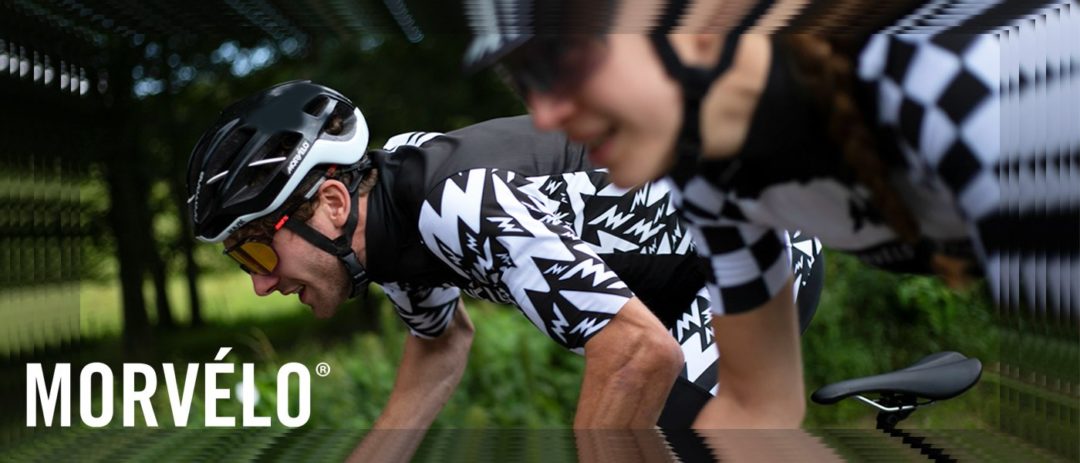
“We’re no Patagonia, but that doesn’t mean we shouldn’t try to be.”
As a small independent business, they are hoping to prove to others in the industry that it is possible to be sustainable and responsible while remaining financially viable. Jack Davey said:
“Our numbers are a little on the small side so it can feel like a drop in the ocean for sure, but without all the drops there would be no ocean to discuss. As cyclists, or simply people who like to spend time outside, the natural world is our playground so we all have plenty of incentive to make the right choices. I’m sure we won’t get everything right first time, but we’ll be documenting everything publically so other businesses can benefit from our screw-ups!”
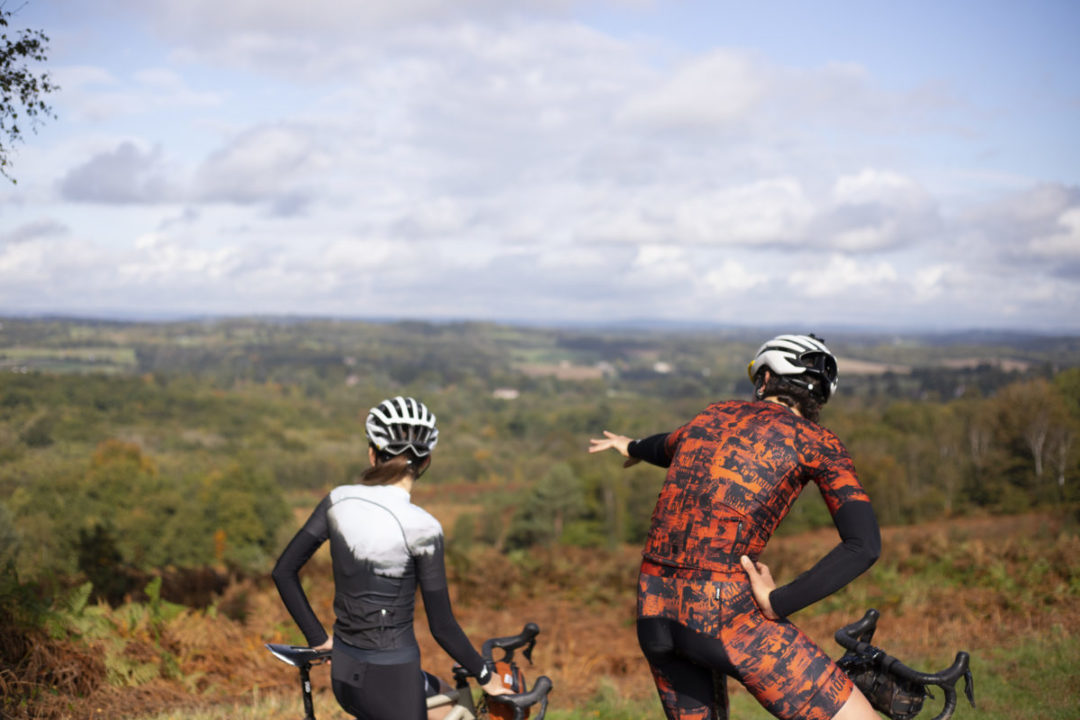
From day one of the new, eco-conscious Morvélo, simply viewed every decision made, as an opportunity to take the low impact route. “Small changes to start off were easy, since we were mostly doing it anyway. We all cycle to work, and operate a low-waste office. International travel is extremely limited for us: we run our photoshoots in UK locations (even if it means shooting short sleeves in January!) and communicate with our overseas suppliers over Skype and Whatsapp, with face-to-face meetings kept to an absolute minimum. Eco-sensibility aside, this stuff just makes good financial sense. Another quick win was to up the proportion of Bluesign-accredited fabrics we use in our products – many were anyway, so switching out one or two was no big deal. We signed up to Shift Cycling Culture to start sharing our findings with other brands via their Shift Industry Hub, and also became a member of the Sustainable Apparal Coalition.”
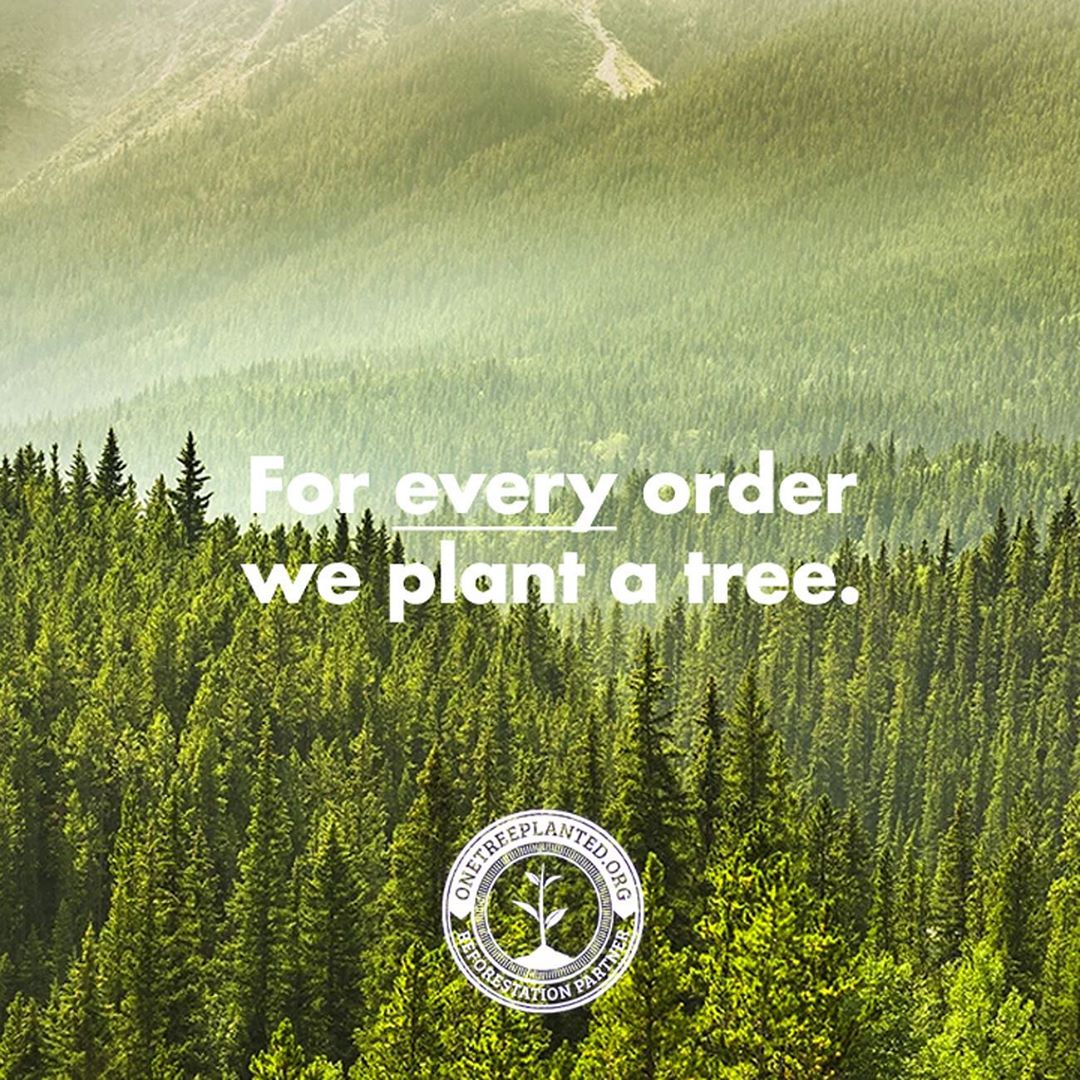
“Making systemic changes further back in the pipeline has been a little bit more difficult so in the meantime we struck up a partnership with One Tree Planted, donating with every order that we receive. They are responsible for some fantastic reforestation schemes and, while donations can quite fairly be labelled as “throwing money at the problem” this partnership serves to offset the damage we do while we improve sourcing and production.”
Back in July last year, Morvélo switched from sending out orders in traditional polybags to using D2W biodegradable plastic and paper post bags. More recently, the team have been looking into compostable packaging and chatting with Repack about their trash-free packaging. “With every decision we make, we now take a waste-free or other low impact route wherever possible.”
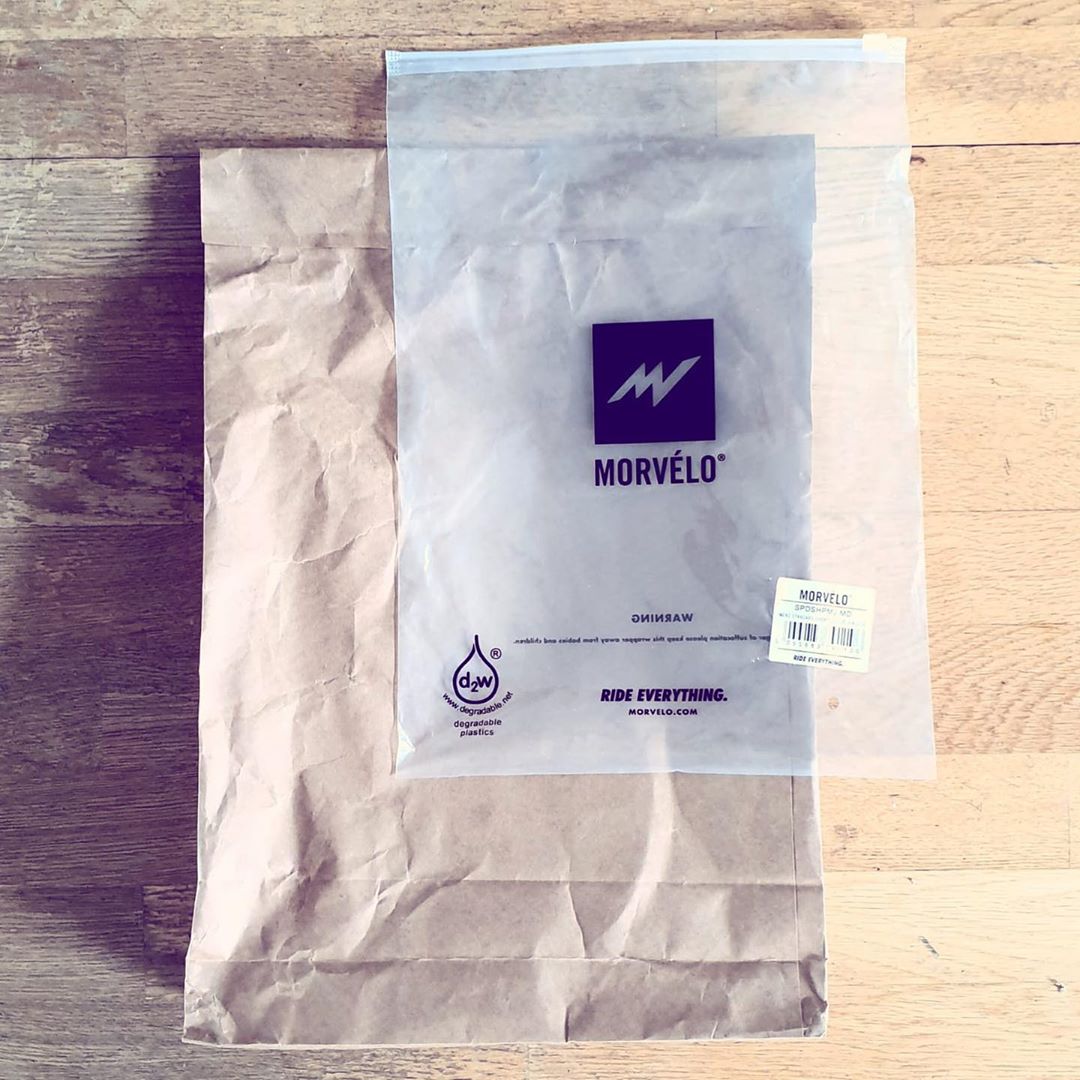
“We have struck up a partnership with Alpkit, who have an excellent repair service so that we can offer warranty repairs should a bit of stitching fail. It won’t always be the most cost-effective solution for us, but it will contribute to reducing production quantities and potentially saves a serviceable item of clothing from being condemned to landfill. Moving even further back up the production line, we are also conducting research into a sportswear circular economy using technologies such as soluble threads (at very high temperatures of course), recycled zips and bioplastic fabrics. We are working on a jersey design project with Sustainable Product Design students at Falmouth University, as part of the Cradle 2 Cradle initiative. Closer to home, we’re also toying with the concept of creating a jacket and/or jersey using existing fabrics, to see if it would be possible to make new garments from old kit.”
Something of a seismic shift for Morvélo has been the launch of our new brand, The Overland. It might seem counter-intuitive, but the driving force behind The Overland is enabling people to buy less clothing in the first place. The products are genuinely multi-purpose, so those of us who get into a whole range of outdoor pursuits need not have a wardrobe for every activity. As a certified lycra lout myself, I know that nothing quite beats slaying a col in a nice new pair of bibs and a well-fitted jersey – but commuting, casual rides, even a more leisurely club run are now conducted in The Overland attire that also gets a lot of wear off the bike.
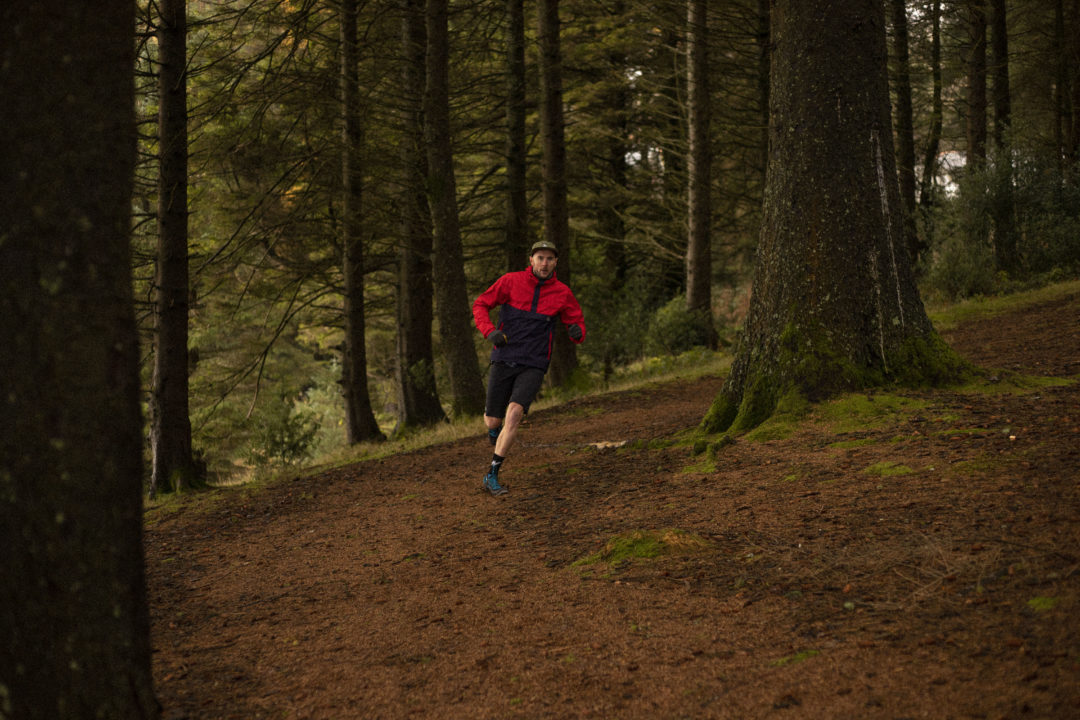
“Going forward, our biggest goal is to use recycled, and easily recyclable, fabrics with every product. A major trip hazard that we’ve come across is that it’s relatively easy to create a garment from entirely recycled materials, but those materials are no longer recyclable. Far from ideal. Where these future Morvélo products may not be easily recycled by a consumer, we would like to offer a returns platform so that we can handle that. In early-stage product development, we’re taking a look at whether garments could be created with easily replaceable high-wear panels. We’ve also got some pretty exciting developments on the way for t-shirts that can be recycled and born again as – you guessed it – a new t-shirt!”